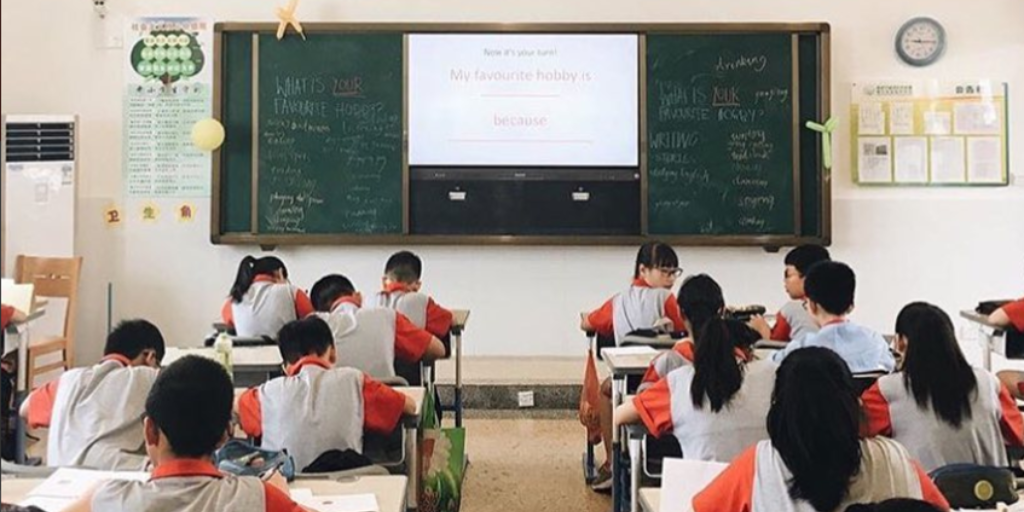
As the pandemic is ongoing, home-based learning has become a challenge both for teachers and students. One of the issues that teachers might face is the increased risk of students cheating.
Students tend to cheat and have different conditions and various aims, but with remote learning, it becomes more challenging for teachers to control and eliminate unfair actions on the part of students.
Below are some tips and strategies to help you minimize cheating during online lessons and tests!
1) Promote Critical Thinking and Creativity

It might be a good idea to avoid fill-in-the-gaps or multiple-choice tasks with plain theoretical content since the answers can be easily found on the Internet or in study materials.
Aim to create tasks that involve creativity and critical thinking. If you make students analyze and reflect on what they have learned, it will be easier for you to check their genuine level of knowledge and skills.
In addition, such tasks will add to students’ abilities and help them perform academically better in the long run.
2) Implementing a Positive Classroom Culture

Many teachers strive to cultivate honesty and a sense of dignity in students. They aim to create a positive classroom culture that prevents any intention of cheating.
Perhaps talking openly about cheating and its consequences will inspire students to behave fairly during online tests and exams. It is important to make students realize that cheating will only play against them.
Tests and exams are created not just to grade students but also to improve the quality of information and materials taught to students.
Once students understand this key point, the need to cheat should diminish since they will be more interested in teaching methods and materials to be enhanced based on their performance during tests or exams.
Still, in the long run, there is no guarantee to ensure that students will not cheat and will focus more on the quality of education they receive. So it is better to incorporate the correct classroom culture.
3) Having Strict Rules

Apart from trusting your students, there should be strict rules regulating student’s behavior during the online learning process.
Many educational institutions have a Code of Academic Conduct, listing things that are allowed and prohibited during online tests and exams and stating general educational rules.
Students should be reminded occasionally about the rules and consequences of cheating, especially when a test or exam is coming up.
They need to understand that it is prohibited and that they will eventually be punished for any kind of cheating attempts.
So, when students know of the punishments such as suspension or even being expelled from school, they are less likely to violate the code of conduct.
4) Peer Feedback

Using peer feedback can help reduce cheating during online tests or exams. Students are encouraged to check their classmates’ work rather than seeking the possibility to cheat.
On top of that, peer feedback also improves student’s analytical and assessment skills and grants them vital experience to use in the nearest future.
5) Make Use of Technologies

Despite the various methods to prevent cheating, online cheating can still be easily performed with students having immediate and unrestricted access to various technological means.
For example, if essays were given as homework, it would almost be impossible to detect whether the student is using a professional coursework writing service in the comfort of their own home.
Despite being informed about the consequences of cheating attempts, many students can still use search engines to help them with correct answers.
On the other hand, teachers can benefit from using technologies to prevent students from cheating during exams and tests.
Here are some of the helpful options:
- Turn on the cameras
Many teachers make it obligatory to have students’ cameras on during tests and exams so that teachers can spot any attempts of cheating. - Restricting the number of windows
There are technologies and programs that allow students to use one window only so that students cannot use the same device to search for some helpful information. - Enforcing a deadline
Having a time limit on a test will prevent cheating since they will be in a hurry to answer all the questions first. - One question at a time
Another option you can add is giving a question one at a time with no option to go back. This way, even if students don’t use all the assigned time, they will have no chance to look up questions they don’t know since they aren’t allowed to return to them. - Mixed questions
Students can also cheat by sending answers to each other. To reduce this risk, you can supply every student with the same set of questions but in randomized order.
As a teacher, you should always consult the relevant specialists or search for the latest technological means to make online learning as transparent and fair for both sides as much as possible.
6) Face-to-face Communication

If you know your students well and have enough time, the perfect solution to abolish cheating will be face-to-face communication.
Through proper communication, it will be possible for a teacher to find out the level of knowledge and skills the student has. Cheating has become a real problem as home-based learning became the most utilized option for education to continue in many countries.
This means that teachers should put in the effort to inspire students to follow the rules and rely on their own skills and knowledge only.
Conclusion
To summarise, technological tools should be combined with discussions and a personalized approach to prevent and eliminate the events of cheating among students as much as possible.
We hope that this article has helped you in your online lessons!
